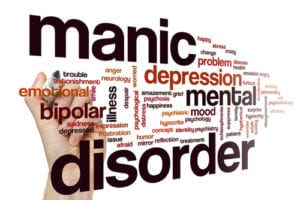Bipolar disorder is also known as manic-depressive illness. It was coined by German psychiatrist Emil Kraepelin who coined manic-depressive psychosis as an episodic disorder with no permanent brain damage. It is more common to use the term bipolar disorder than manic-depressive as the former is less stigmatizing towards others. There are still some psychiatrists and other people who use the term manic-depressive if that term displays the nature of the disorder accurately.
Bipolar disorder causes unusual shifts in energy, mood, activity, and doing day to day tasks. There are moments where you could be extremely upbeat, thrilled, energized (manic), very sad, gloomy, and hopeless periods (hypomanic). There are different types of bipolar disorders such as Bipolar I which are manic episodes that last seven days or severe manic symptoms that need immediate care. Depression and manic symptoms can occur at the same time. Bipolar II is when you experience depressive episodes and hypomanic episodes. Cyclothymic Disorder is when you go through many moments of hypomanic symptoms as well as depressive symptoms that can last two years. You can undergo emotion, sleep, and activity level changes as well as unusual behaviors.
There are differences between manic and depressive episodes. In manic episodes, you can experience feeling cheerful, having a lot of energy, feeling more active than usual, talking really fast, and doing a lot of things simultaneously. There are also moments where you could have trouble sleeping, become agitated, irritable, and touchy as well as engaging in risky activities that you would not normally do.
Depressive episodes consist of a lot of negative symptoms such as feeling sad, empty and hopeless. Your energy levels are very low as well as your activity levels. You feel like you cannot enjoy anything, tend to forget things, and have trouble concentrating. People who are depressed can also experience thoughts of death or suicide.
To avoid these life-impacting consequences that come with being bipolar, there are treatments to control your mood swings as well as psychotherapy. Medications to treat bipolar disorder can be antidepressants, atypical antipsychotics, and mood stabilizers. It is best to talk to a doctor or therapist about the pros and cons of each medication before taken. Psychotherapy is also known as talk therapy to help give support, education, and guidance. There is family-focused therapy, psychoeducation, and cognitive behavioral therapy. All of these helpful treatment options can help you live a typical life.
Life can have normalcy with bipolar. Avalon Malibu proudly serves as one of California’s exclusive certified primary mental health treatment facilities while providing care for substance use disorders as well. If you are struggling with bipolar and/or substance abuse, call us today for a confidential assessment and more information on our continuum of care: (888) 958-7511











